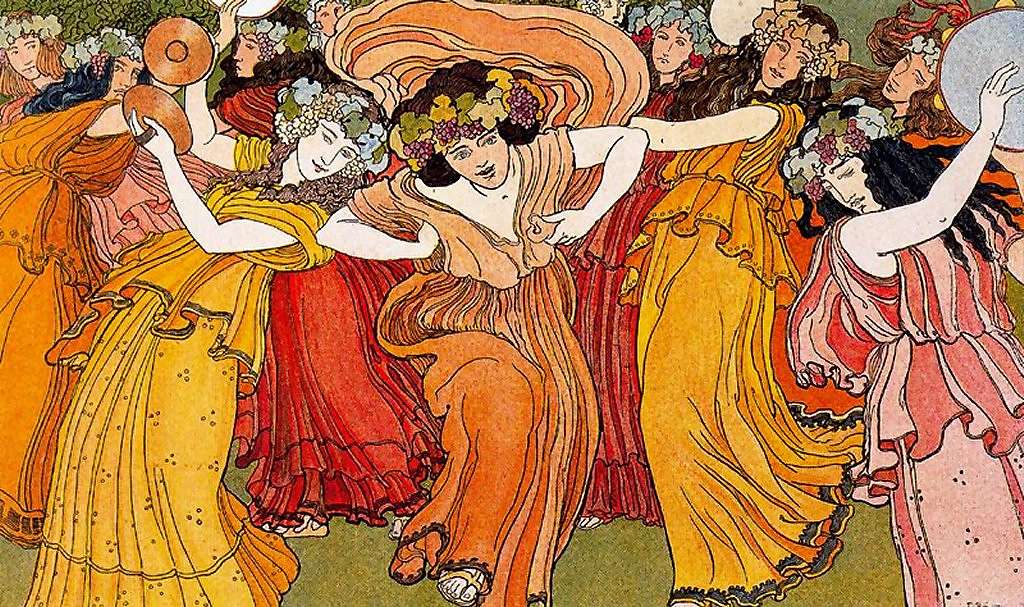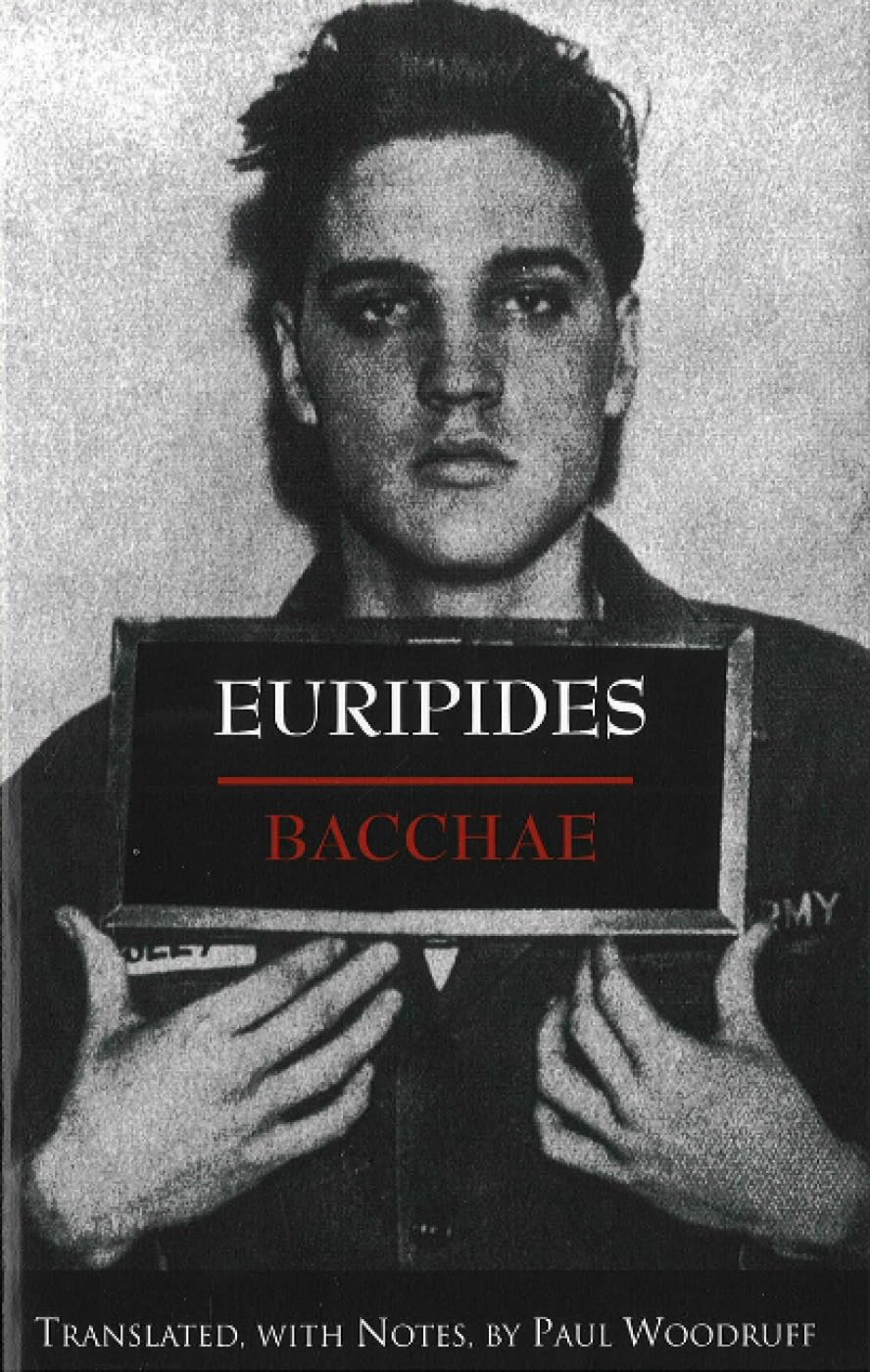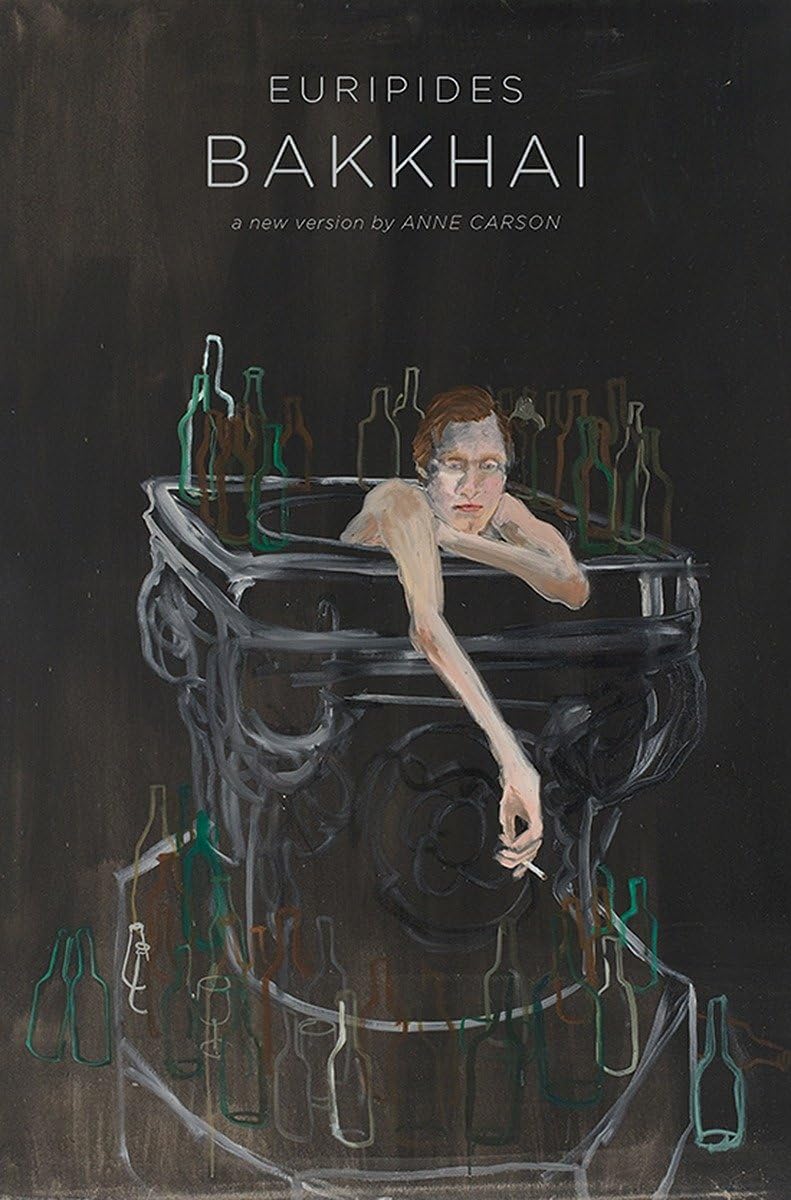A Tale of Divine Revenge and Human Hubris
There’s a moment in The Bacchae when King Pentheus, disguised as a woman, climbs a tree to spy on religious revelers. The audience knows what he doesn’t – that this act of voyeurism will lead to his own mother tearing him limb from limb in a divine-induced frenzy. This haunting scene epitomizes why The Bacchae remains one of theater’s most shocking and relevant works, a masterpiece that explores the eternal conflict between order and chaos, reason and ecstasy, state and religion.
Quick Facts
- First performed: 405 BCE at the Theater of Dionysus, Athens
- Original title: Βάκχαι (Bakchai)
- Runtime: Approximately 100 minutes
- Structure: Prologue, 5 episodes, 4 choral odes, exodus
- Awards: Won first prize at the City Dionysia festival (posthumously)
- Notable adaptations: Peter Hall’s 2002 production at the National Theatre, Wole Soyinka’s “The Bacchae of Euripides” (1973)
Just want to read the play?
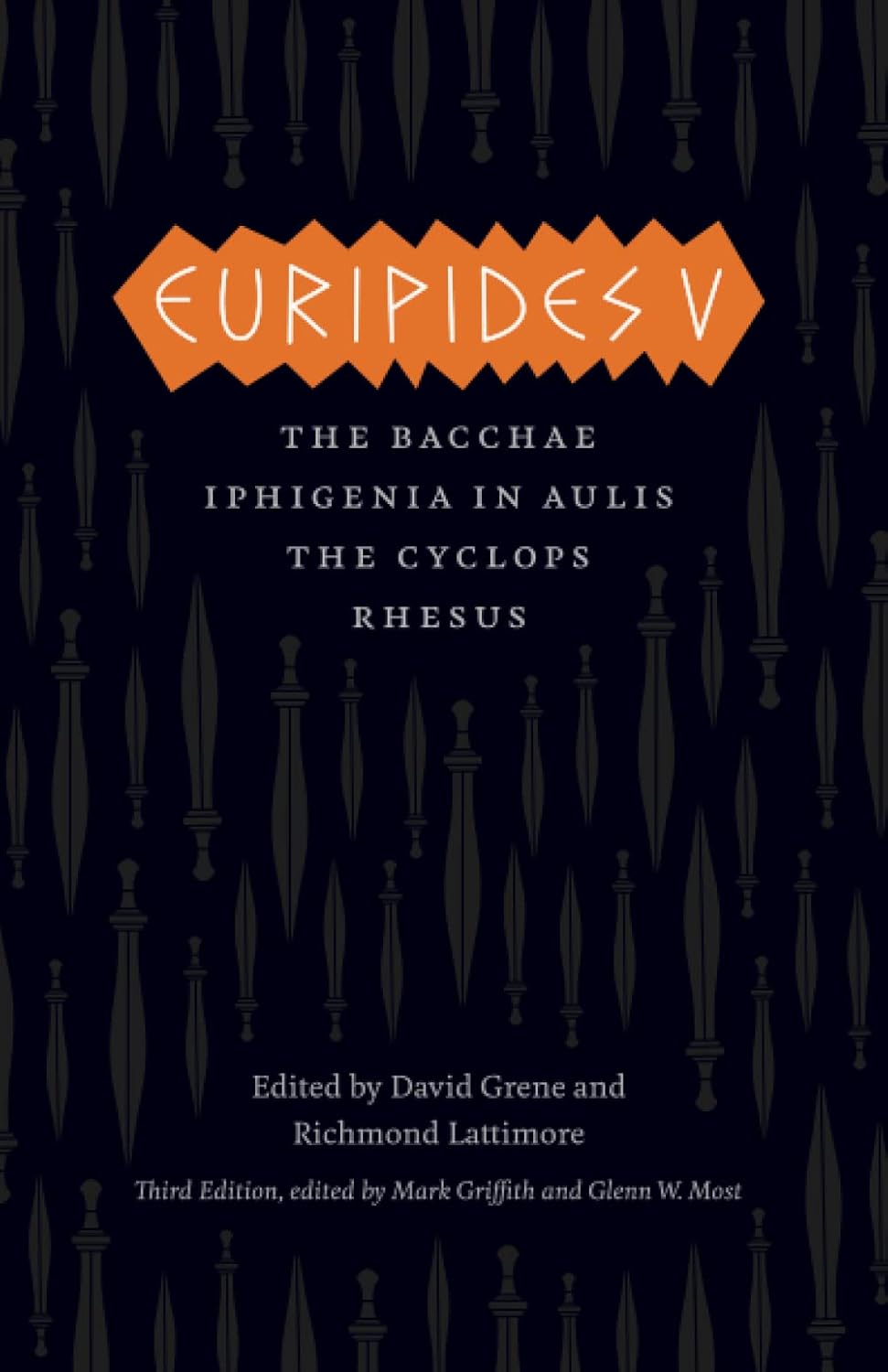
William Arrowsmith translation
William Arrowsmith’s version may be more than 60 years old, but it still holds as a poetic masterpiece..
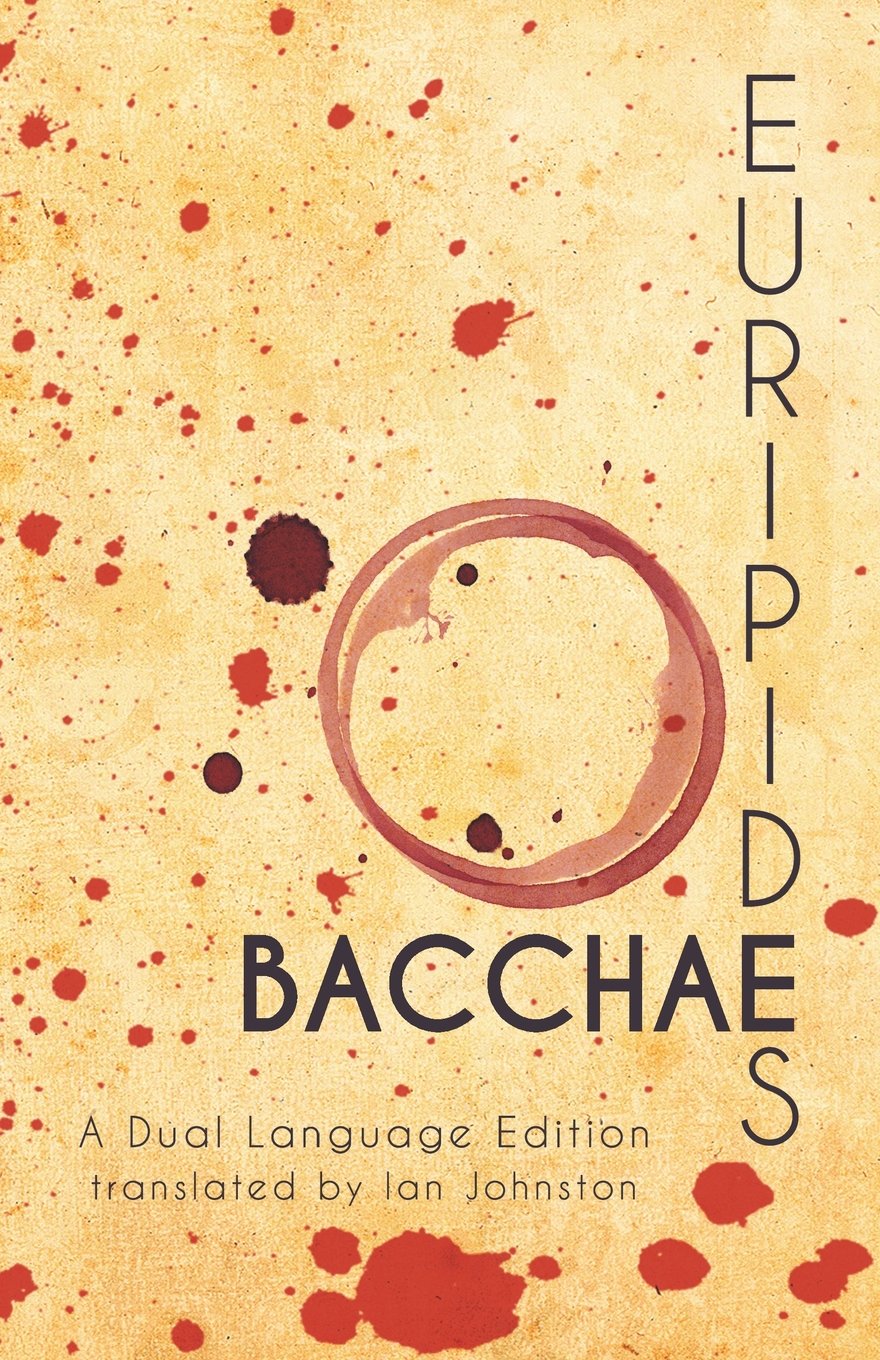
Dual language edition by Ian Johnston
Interesting version for anyone interested in experiencing the original Greek.
Free version? Try the version on Project Gutenberg: https://www.gutenberg.org/ebooks/35173
Historical Context
Written during the twilight of both Euripides’ life and the Golden Age of Athens, The Bacchae emerged at a crucial historical moment. Athens was losing the Peloponnesian War, and traditional religious values were being challenged by rational philosophy. Euripides wrote this play in self-imposed exile in Macedonia, where ancient Dionysian cults still thrived. The play’s exploration of religious ecstasy versus rational control reflected Athens’ own struggle between traditional beliefs and emerging skepticism.
Plot Overview
The god Dionysus arrives in Thebes, birthplace of his mortal mother Semele, to establish his cult worship. His cousin, King Pentheus, refuses to acknowledge Dionysus’s divinity and attempts to suppress the wild religious rituals of his followers, the Bacchae. Dionysus manipulates Pentheus into spying on the Bacchic rites by arousing his curiosity and desire. Disguised as a woman, Pentheus witnesses the rituals but is discovered and brutally torn apart by the Bacchae, led by his own mother Agave, who in her frenzy believes she’s hunting a lion. Only when Agave returns to the city with her son’s head does she realize the horrible truth of her actions.
Themes & Analysis
Divine and Human Nature
The Bacchae presents a complex view of divinity and humanity. Dionysus embodies both creation and destruction, pleasure and pain. He represents the irrational forces that exist within human nature – forces that Pentheus foolishly tries to suppress. The play suggests that denying these aspects of human nature leads to catastrophic consequences.
Rationality vs. Ecstasy
Pentheus represents ordered, rational governance, while Dionysus embodies ecstatic liberation. Their conflict suggests that both complete control and complete abandon are dangerous extremes. The play advocates for a balance between these forces, though it demonstrates this through the tragic consequences of imbalance.
Gender and Power
The play subverts traditional gender roles, with Pentheus’s masculine authority undermined by his feminine curiosity. The Bacchae themselves represent female empowerment and its potential for both liberation and destruction. This exploration of gender dynamics remains startlingly relevant.
Revolutionary Elements
The Bacchae broke new ground in several ways:
- Meta-theatrical elements (Dionysus as both character and director of events)
- Psychological complexity (particularly in Pentheus’s transformation)
- Religious commentary that questions both skepticism and blind faith
- Graphic violence described but not shown, leaving the horror to imagination
Cultural Impact
The play’s influence extends far beyond ancient Greece:
- Inspired countless adaptations, from operas to modern retellings
- Influenced psychological theories about repression and release
- Provided a model for exploring religious ecstasy in literature
- Referenced in works from Shakespeare to modern horror films
Staging & Performance
The Bacchae presents unique challenges:
- Representing divine presence on stage
- Depicting the chorus of Bacchae (foreign women under religious possession)
- Handling the violent climax
- Balancing religious ritual with dramatic action
Reading Guide
Best Translations
- William Arrowsmith (most poetic)
- Paul Woodruff (most accurate)
- Anne Carson (most modern)
Reading Tips
- Pay attention to the chorus’s evolution throughout the play
- Note the subtle building of tension in Pentheus’s psychology
- Watch for images of disguise and recognition
- Consider how the divine and human worlds interact
Contemporary Relevance
The Bacchae speaks to modern concerns about:
- Religious fundamentalism versus secular authority
- Mass movements and crowd psychology
- Gender roles and power dynamics
- The conflict between individual freedom and social order
Discussion Questions
- Is Dionysus justified in his revenge?
- What does the play suggest about the relationship between religion and state?
- How does the play’s treatment of gender relate to contemporary issues?
- What role does transformation play in the story?
Fun Facts & Trivia
- The play was first performed after Euripides’s death
- The role of Dionysus was likely played by the same actor who played Pentheus
- Ancient audiences would have recognized many ritual elements from their own religious practices
- The play’s ending may be partially lost or fragmentary
Conclusion
The Bacchae endures because it captures eternal human struggles: the individual versus society, reason versus passion, control versus freedom. Its exploration of religious ecstasy, political power, and human nature remains as relevant today as it was 2,400 years ago. Whether read as a political allegory, religious commentary, or psychological study, it continues to offer new insights with each generation.
Additional Resources
- Richard Seaford’s commentary on The Bacchae
- E.R. Dodds’s “The Greeks and the Irrational”
- The Cambridge Companion to Greek Tragedy
- Online resources at the Perseus Digital Library
The Bacchae stands as one of world theater’s greatest achievements, a work that continues to shock, enlighten, and challenge readers and audiences. Its placement near the beginning of our “100 Plays to Read Before You Die” series reflects not just its historical importance, but its continuing power to speak to contemporary concerns.

